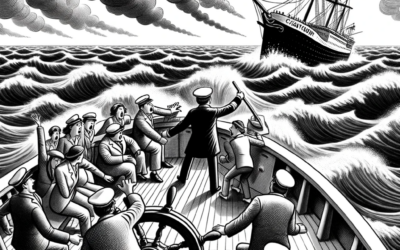Today’s leadership tip on how to avoid superheating new team members comes from thermodynamics. The old adage “a watched pot never boils” reminds us that time passes slower when you’re waiting. On the other hand, if the fire or stove is hot enough, the water does, in fact, boil, whether it’s watched or not. You can watch the bubbles, tiny at first, climb the edges of the pot and then rumble into waves that eventually bubble and pop.
As leaders, we often pride ourselves in reading others. We read their body language, not just their comments, so we know how they feel about a particular project or result or coworker. We can usually tell before they reach the boiling point. And we try to address problems before they boil over, and before people become boiling mad.
Sometimes, we don’t see the bubbles, though, and others’ anger catches us by surprise.
If you heat water up in a microwave for two minutes or more, it can become superheated. It may explode when the mug or cup is jostled as it’s removed from the microwave, and might cause severe burns. This can happen particularly in new cups or mugs, where there aren’t tiny scratches. Tiny scratches are places for bubbles to form and energy to be released.
Beware of superheating new team members. If you apply a lot of heat or pressure in a short amount of time, they may explode–without any outward signs or warnings. Their newness and unfamiliarity with you or some of their team members or the organization is akin to not having the small scratches where bubbles can form. They may not have a way to diffuse the tension or pressure.
If you put a nonmetal object in the cup of water (like a wooden spoon), the water won’t superheat in the microwave. The spoon diffuses the energy. As a leader, find a way to diffuse the pressure on new team members. Give them opportunities to vent.



